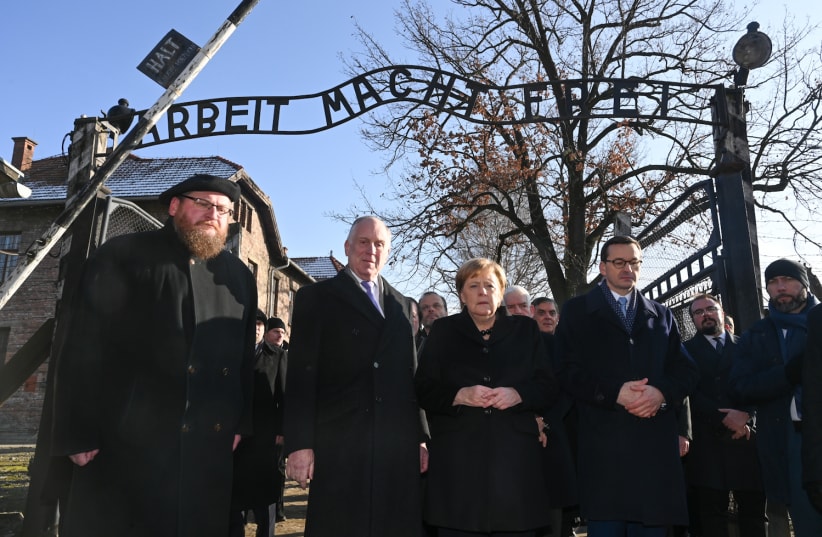Germany has increased its pledge towards a fund supporting the preservation of the Auschwitz-Birkenau concentration and extermination camp, doubling the amount of 60 million euros the country had previously pledged in December to 120 million euros.
German Foreign Minister Heiko Maas joined Piotr M.A. Cywinski, Director of the Auschwitz-Birkenau State Museum and President of the Auschwitz-Birkenau Foundation, for a ceremony in Warsaw this week announcing that Germany will be contributing an additional 60 million euros to the preservation fund, essentially doubling the country's contribution.
In December, German Chancellor Angela Merkel announced the first pledge of 60 million euros during a ceremony held at the Auschwitz-Birkenau Memorial, marking her first visit.
“I personally accompanied Chancellor Merkel on her visit to Auschwitz-Birkenau in December 2019 where together, we reviewed in length the work being accomplished at the site’s Conservation Laboratories," said World Jewish Congress President Ronald S. Lauder in a statement the congress published commending the decision.
"Chancellor Merkel and Foreign Minister Heiko Mass understand the importance of Holocaust education to fight the surge of rising antisemitism and Holocaust denial," Lauder added. "I am extremely grateful to Germany for its recognition of the importance of the preservation of the memorial site of the Auschwitz-Birkenau concentration and extermination camp, a cause I have been supporting for many years."
The fund was established in 2009 in attempt by Poland to preserve "all authentic remnants of Auschwitz-Birkenau," according to the memorial's official website. The fund has been sustained by 38 different countries, with its main contributors being the United States and Poland – and now, Germany.
"Many of the buildings were not built to last long," Cywinski said last year after the December ceremony. He added that the foundation needs between 18 million zlotys and 20 million zlotys (€4 million to €4.5 million) annually to maintain conservation.
Earlier this month, the Auschwitz-Birkenau Memorial had put out an appeal for donations after it was forced to close its doors to visitors as a result of the coronavirus, which strained its financial situation.
The memorial said it needed donations to continue educational and research projects, after its 2020 budget "collapsed." In 2019, it had a total budget of 113.9 million zlotys (€25.5 million).
However, it added that the conservation of the camp was not put at risk, as conservation work is being funded by the foundation, which was expected to double its financial support in 2020. Reuters contributed to this report.
